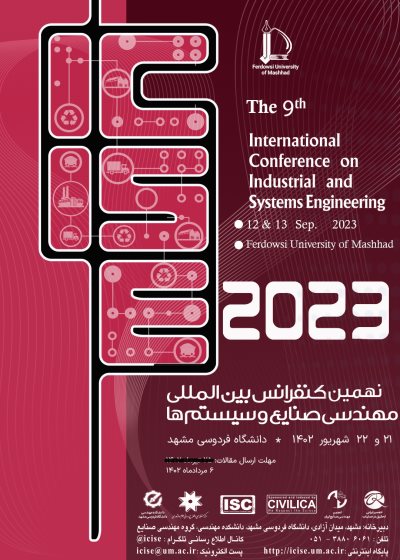0% Complete

نویسندگان :
کلمات کلیدی :
چکیده :
لیست مقالات بایگانی شده
محمد رضا فلاح زاده ابرقوئی - آفرین اخوان
نجمه جمالی - محمدمهدی ابراهیمی - مینا عسکری - الناز ابراهیمی
امیرحسین حریری - مانی قنبری
پرویز فتاحی - مهدیه شیری - فاطمه سوگندی
عباسعلی جعفری ندوشن - زهرا رستگاری - فاطمه عظیمی
وحید بنازاده - عاطفه امین دوست
Shima Malekpour - Shahrokh Asadi
AmirSaeed Nikkhah Qamsari - SeyedJavad Hosseininezhad
علی جعفری - علی دنیوی - سعید فضایلی




